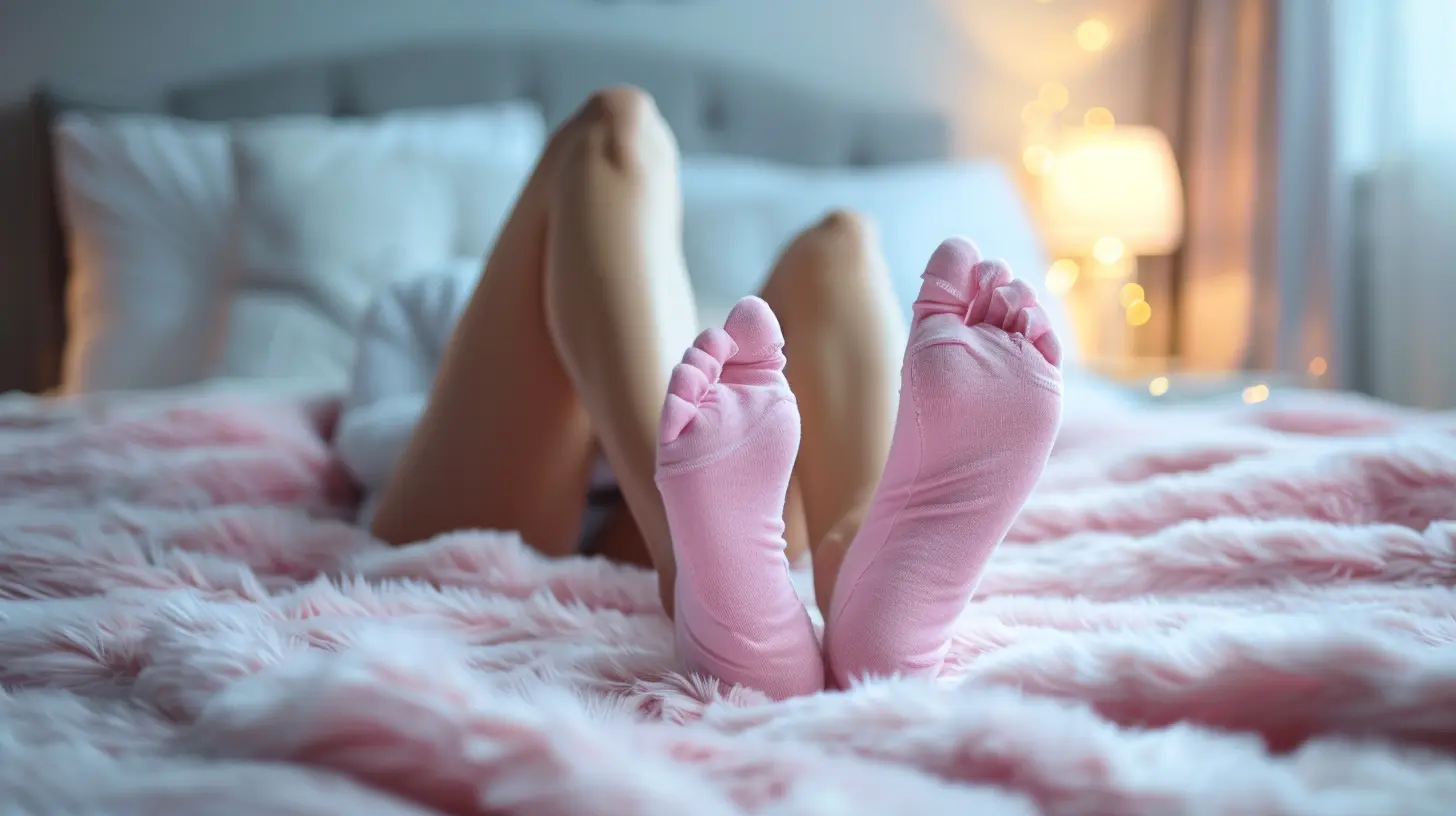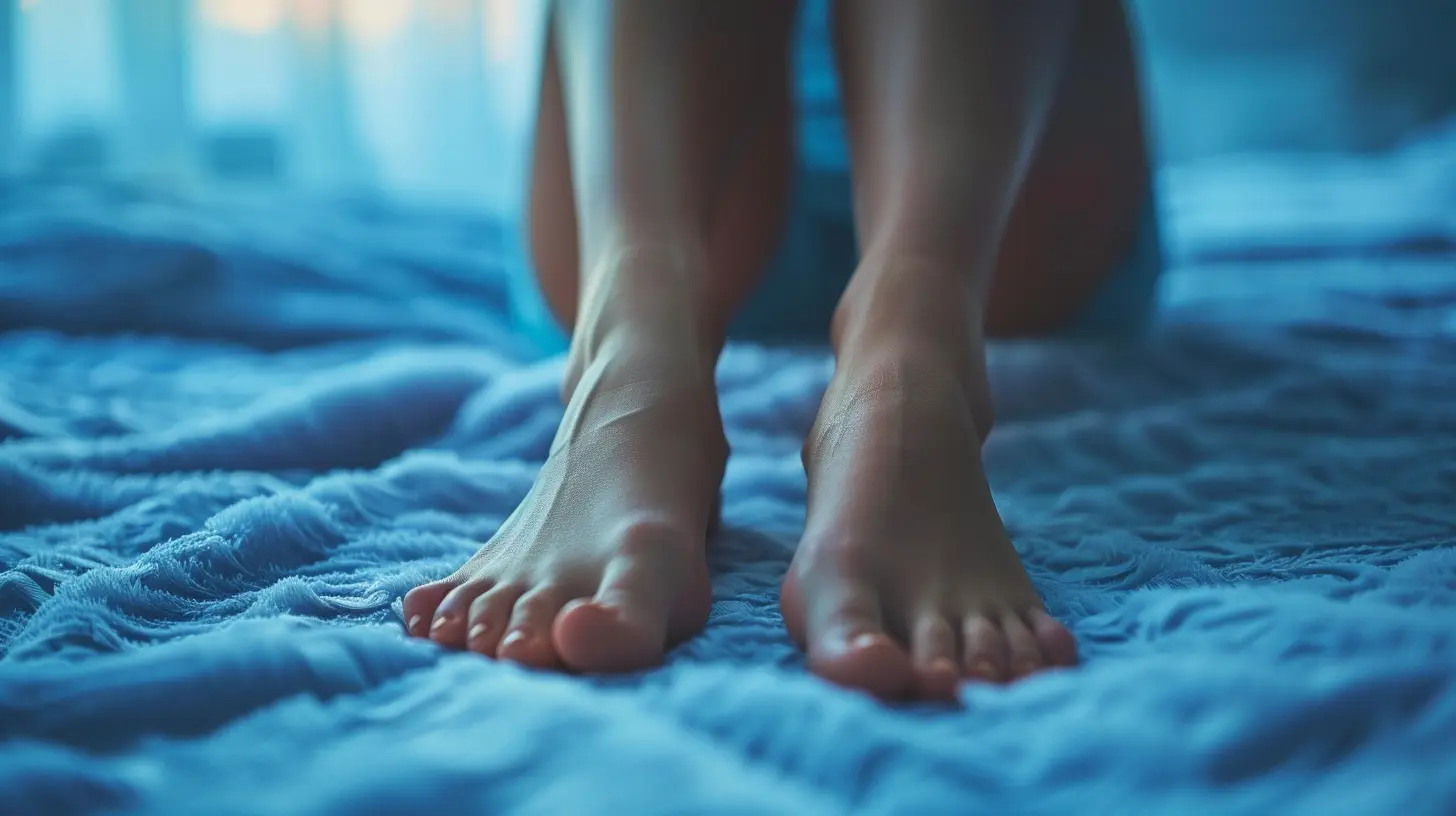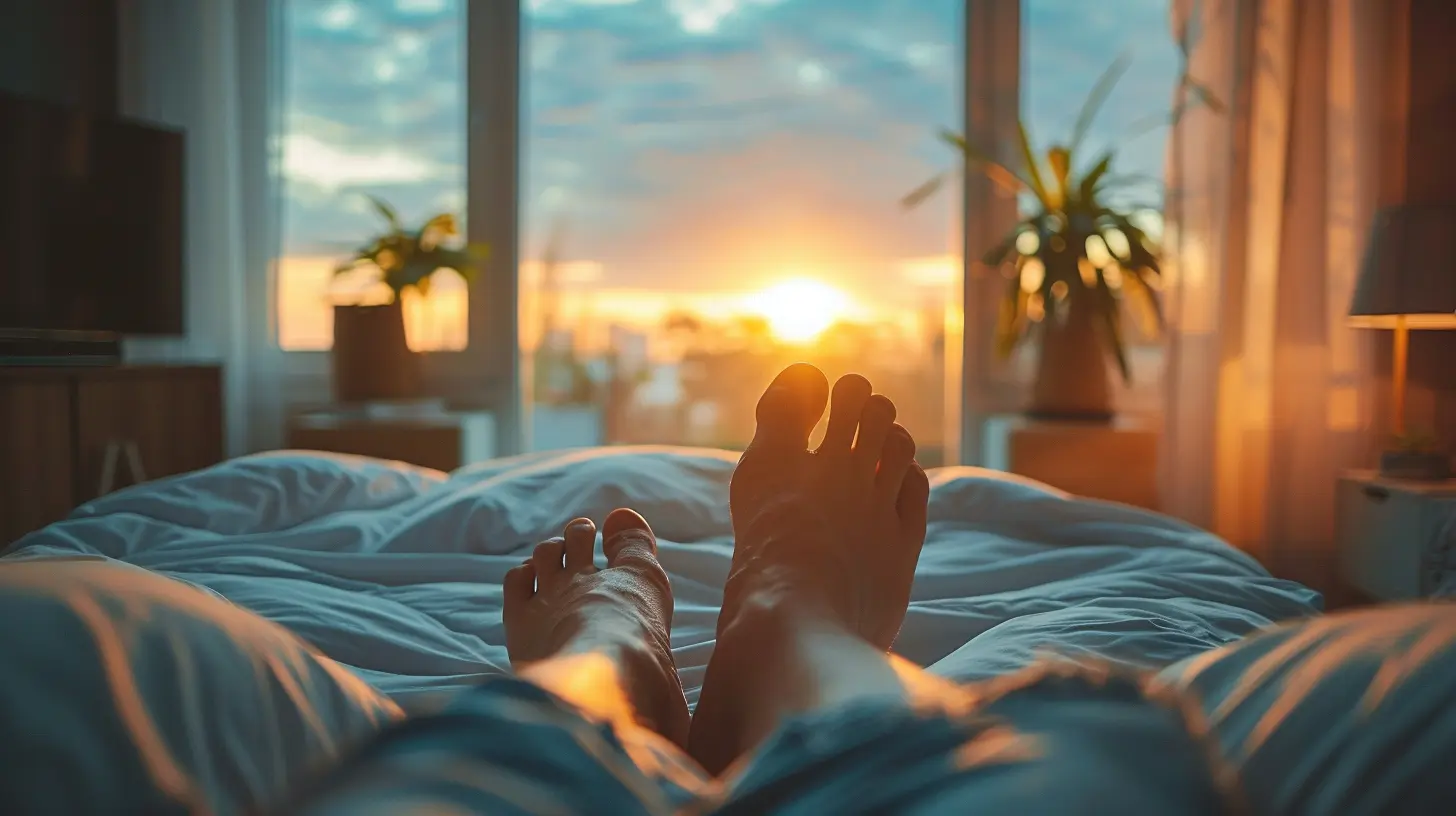Why Restless Legs Syndrome Could Be Affecting Your Sleep
16 July 2025
Have you ever laid in bed, absolutely exhausted, ready to drift into dreamland… and then your legs begin their midnight dance? A strange, almost electric urge to move them, crawl out from under the covers, and start pacing like you're haunted? If that sounds painfully familiar, you may be among the millions affected by Restless Legs Syndrome (RLS), a sneaky little sleep thief.
And trust me, you’re not alone.
Those twitchy, jumpy legs could be the reason you’re counting sheep at 2 a.m., wondering when sleep will finally kick in. So grab a cozy blanket, curl up (if your legs let you), and let’s uncover the truth behind why Restless Legs Syndrome could be affecting your sleep—and what you can do about it.
What Is Restless Legs Syndrome, Anyway?
Let’s start simple.Restless Legs Syndrome, or RLS for short, is a neurological condition that triggers an uncontrollable urge to move your legs. It usually hits hardest during periods of rest—especially at night. You're trying to relax, and bam, your legs are throwing a tantrum. It’s like your body wants to sleep, but your legs didn’t get the memo.
It Feels Like…
Everyone describes it differently. Some say it feels like pins and needles. Others describe it as crawling, tingling, burning, or even an itch you can’t scratch. Whatever the sensation, it’s deeply uncomfortable. And the worst part? Moving your legs is the only thing that helps. But that relief is temporary. The restless feeling comes creeping back, again and again.Sounds familiar? Keep reading.
You're Not Just Imagining It: RLS and Sleep Disruption Are BFFs
You might think it’s “just a leg thing.” But here’s the real kicker: it wrecks your sleep. For many people, RLS symptoms worsen at night, right when your body needs to wind down. That means falling asleep becomes a struggle, and staying asleep? Even harder.The Sleep Struggle Is Real
Think about it—how are you supposed to drift off when your legs are on a five-hour energy high? This constant tossing, turning, twitching can lead to:- Insomnia
- Interrupted sleep
- Daytime fatigue
- Mood changes
- Lower concentration
Ever feel like a zombie after a full night in bed? Yep. RLS could be the culprit.
Who Gets RLS?
Here comes the twist—RLS doesn’t play favorites. It can affect anyone, anytime. But there are a few groups at higher risk:- Women (twice as likely as men)
- People over 40
- Pregnant women (especially in the third trimester)
- Those with iron deficiency or kidney disease
- People with a family history of RLS
So if your mom talked about her twitchy legs, you just might be next in line.
More Than Just Legs: The Hidden Toll on Your Health
Sleep isn’t just about feeling rested. It’s about your body healing, recovering, and staying healthy. Without deep sleep, your entire system can start falling apart like a house of cards.Sleep Deprivation = Bad News
Let’s put it into perspective. Chronic lack of sleep from RLS can mess with your:- Immune system (hello frequent colds)
- Memory and focus (goodbye productivity)
- Heart health (increased risk of hypertension)
- Mood (hello anxiety and depression)
The bigger picture? RLS doesn’t just mess with your nights—it bleeds into your days, your health, your relationships, and your life.
What's Causing Those Restless Legs?
Okay, so now you know it’s not in your head. But what causes Restless Legs Syndrome in the first place? Well, science is still piecing some parts together, but here are the leading suspects:1. Iron Deficiency
Low iron = low dopamine. And dopamine is key in controlling muscle movement. See the issue?2. Neurological Factors
Some experts link RLS to abnormal dopamine activity in the brain. Think of dopamine as the “movement manager” of your nervous system.3. Chronic Diseases
Conditions like kidney failure, diabetes, and peripheral neuropathy are often found hanging out with RLS.4. Medications
Certain medications—like antihistamines, antidepressants, or antipsychotics—might stir things up.5. Pregnancy
One in five pregnant women report RLS symptoms, especially later on. The good news? It often goes away after delivery.6. Genetics
Yep, it can run in the family. If your family tree has twitchy roots, you might have inherited them.So How Do You Know You’ve Got It?
Self-diagnosis is tempting, but RLS symptoms can mimic other conditions. Still, some red flags are pretty unmistakable:- You get the uncontrollable urge to move your legs.
- It gets worse in the evening or at night.
- Movement provides temporary relief.
- Symptoms crop up during periods of rest or inactivity.
If this ticked your boxes, it might be time to talk to a healthcare provider.
How Can You Tame the Beast? Natural Relief for Restless Nights
While there’s no magical “cure” yet, the good news is you can manage RLS—and take back your precious sleep. Let’s look at some natural, drug-free remedies that can help soothe your legs and calm your nights.1. Iron Supplements
If blood tests show low iron, taking iron under your doctor’s guidance might reduce your symptoms drastically.2. Magnesium for Muscle Relief
Magnesium is famous for relaxing muscles. Think of it as a spa day for your nervous system. You can find it in leafy greens, bananas, or supplements.3. Warm Baths & Leg Massages
Sounds simple, right? But it works. A warm soak followed by gentle massage can calm restless nerves and make bedtime more inviting.4. Stretching and Yoga
Light evening exercise—like stretching or gentle yoga—can ease tension and prep your body for sleep.5. Cutting Back on Caffeine & Alcohol
Sad but true—your beloved evening wine or coffee could be making things worse. Try swapping them for herbal teas.6. Sleep Hygiene
No screens before bed. Cool, dark room. Consistent schedule. You know the drill, but with RLS, it matters even more.When to Consider Medical Treatments
If natural remedies aren’t cutting it, don't suffer in silence. There are medical treatments that can help, including:- Dopaminergic agents (to boost dopamine)
- Anticonvulsants (to calm nerve activity)
- Benzodiazepines (to promote sleep)
- Opioids (in very severe cases)
But these come with side effects, and should only be used under medical supervision.
Living With RLS: You’re Not Alone
Let’s be real—living with Restless Legs Syndrome can feel isolating. People may not understand why you’re tired all the time, or why you’re constantly moving like you’ve got invisible ants in your pants. But know this: you’re not alone. Millions are navigating the same twitchy road. And there is help, hope, and healing.Some Extra Comfort Tips:
- Keep a symptom journal—track what triggers flare-ups and what calms them- Join online support groups—nothing beats talking to people who get it
- Talk to your doctor—always
A Quick Recap Before You Slip Into Sleep
So here’s the bottom line, friend:Restless Legs Syndrome isn’t just “weird legs” or a quirky habit. It’s a very real condition that messes with your sleep, your peace, and your health. But the good news? You can fight back.
With a little curiosity, a lot of self-care, and maybe some expert help, you can calm those restless limbs and finally get the good night’s rest you deserve.
And hey—one day soon, your legs might just stay still long enough to dream.
Sweet dreams ahead.
all images in this post were generated using AI tools
Category:
Sleep HealthAuthor:

Tiffany Foster
Discussion
rate this article
1 comments
Marley Reese
Restless legs: the sleep thief you can't ignore!
July 31, 2025 at 4:54 AM

Tiffany Foster
Absolutely! Restless legs syndrome can significantly disrupt sleep, making it essential to address its symptoms for better rest.


